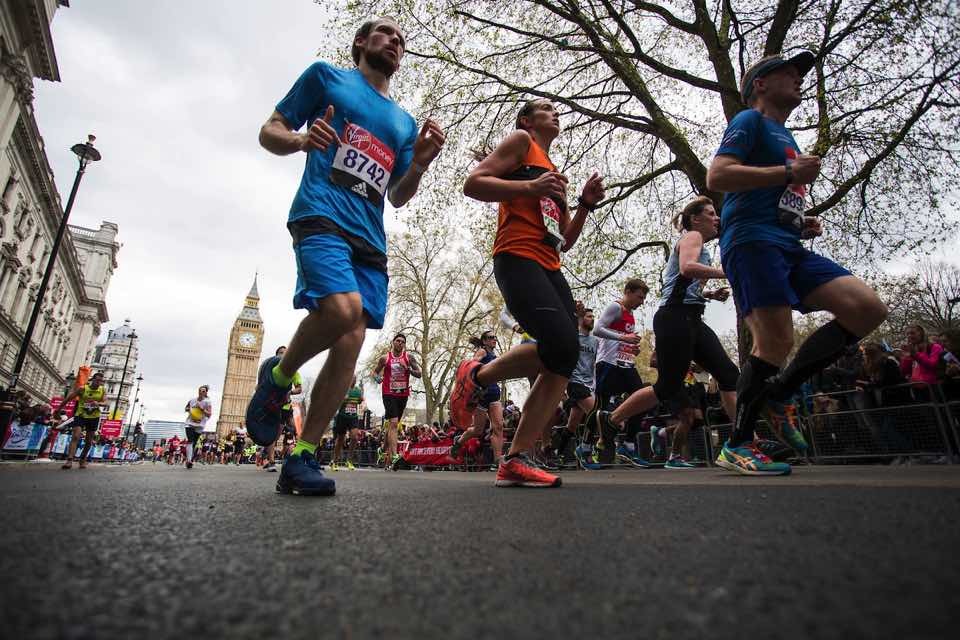The Road to Running Your First Marathon
The first long run is always a little scary. Excitement mixes with nerves, and you wonder if it’s really possible. Legs feel heavy, and every step reminds you that running a marathon is hard work. It’s not just about putting in miles – learning to pay attention to your body and how your mind reacts is just as important.
The beginning is deceptively simple. Three miles, four miles are barely a stretch, but each step feels heavier than the last when you get closer to finish.
Pacing becomes a game, but more than that, it’s a test of patience. Early mornings, chilly air, and the rhythm of the streets become companions in a routine that quickly teaches lessons about discipline and consistency.
Finding Flow in Routine
Consistency is key, yet it never comes without struggle. Some days, every step feels light, the wind pushing forward like it’s part of the body. Other days, the pavement seems to pull back, and the mind finds every excuse to stop. Most runners learn early that training isn’t just physical. Mental resilience often carries more weight than leg strength.
Journaling helps. Recording distances, feelings, and even little victories, like finally hitting a target pace or finishing a hilly route without stopping, provides proof that progress exists even when the body protests. A few lines on paper can be more motivating than any app notification.
Cross-Training: The Secret Weapon
Long runs aren’t the only way to improvement. Cycling on quiet roads, yoga flows in a sunlit room, and core strength exercises all contribute to endurance.
These activities build muscles that are not fully engaged during running, while giving joints their needed break. Many runners discover that a strong core makes those last few miles far more manageable than expected.
Recovery days, once ignored, become sacred. Gentle swimming, foam rolling, and even mindful walks give muscles time to repair. It’s during these moments that the body actually adapts and grows stronger, reminding you that rest is part of the training, not a substitute for effort.
Food, Fuel, and Small Rewards
Long runs demand fuel, and experimentation becomes part of the journey.
Energy gels, bananas, or just a strong cup of coffee before hitting the trail provide lessons in what the body can handle. Hydration comes between comfort and necessity.
And while some rewards are physical, others are mental. Completing a particularly grueling week or hitting a personal milestone deserves celebration.
Some runners unwind with small, harmless diversions online. Others explore games at top rated Revolut casinos, enjoying a break while staying disciplined. These moments, however brief, provide a sense of accomplishment beyond the miles.
Facing the Mental Wall
The infamous wall exists for every marathoner. Around the middle of the marathon, energy drops and doubts appear. Questions like “Why am I doing this?” or “Can I really finish?” grow louder with each step.
Mental strategies matter here. Breaking the distance into smaller, conquerable segments, repeating mantras, or focusing on breath can make you determined.
Visualization also works wonders. Imagining the finish line, the cheers, or the satisfaction of completing a planned route can carry runners through their toughest moments. It’s not about fantasy but about preparing the mind for reality.

Gear That Supports Running
Shoes can make or break a run. Getting the right fit and cushioning helps prevent injuries and keeps feet comfortable on long runs.
Moisture-wicking socks and breathable layers stop chafing when it’s hot or humid. Even little things, like lighter shorts or a running watch, can make a noticeable difference.
Tech is useful, but it’s just a tool. GPS watches, heart-rate monitors, and running apps can show pace and recovery, but they don’t know your body like you do. A sore leg or tight hip is a signal that should come first, no matter what the numbers say.
Lessons Learned Along the Way
Marathon training teaches more than running technique. Key takeaways emerge naturally:
- Progress isn’t linear. Some weeks feel easier, some harder. Both are valuable.
- Patience beats intensity. Consistent, moderate effort builds lasting endurance.
- Recovery is productive. Rest days aren’t wasted time but an essential part of the process.
- Mental resilience is cultivated, not given. Overcoming doubts is part of the reward.
- Celebrate small wins. Every completed route, every extra mile, every early morning matters.
These lessons often spill into daily life, reshaping perspective and building confidence beyond running shoes.
Race Day: Experiencing the Journey
Race morning hits, and suddenly everything feels real. The streets are crowded, the air smells like sweat and coffee, and footsteps pound all around. The first few miles are a weird mix – your legs feel okay, your heart races, and part of you thinks, “Maybe this won’t be so bad.”
Then mile 10 hits, and your legs start to argue. Energy dips. You catch yourself thinking, “Why did I sign up for this?” That’s when small things matter: spotting a friend on the sidelines, eyeing the next water station, or just telling yourself to get to the next lamppost. One step at a time.
The last few miles bring pain and determination. Crossing the finish line is relief. Sore muscles, tired feet, and all the effort of months of training are all worth it. There’s a strange shared pride, too, as every runner around you has gone through the same struggle.
After the First Marathon
After the first marathon, things change. Some runners go after faster times. Others just enjoy the run without pressure. Cross-training and rest days still matter, but the focus shifts. It’s less about finishing and more about enjoying the process.
Every mile teaches something – how to pace yourself, how to keep going when it hurts, and how rewarding a simple run can feel.
The first marathon sticks in memory: the early mornings, the long runs, the finish line. Even years later, those moments remain unforgettable.



